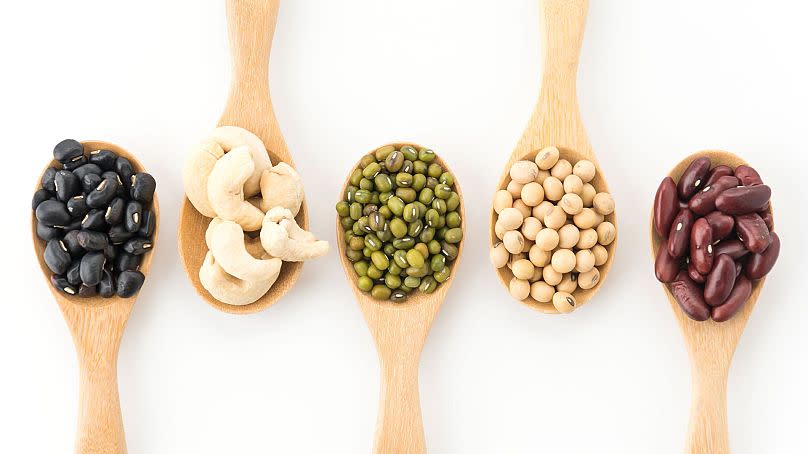'Make beans sexy': Beans are good for you - and great for the planet. Here's why you should eat more

Could beans save the world?
The humble legume is already a staple at dinner tables around the globe.
But a coalition of environmental groups claims that doubling bean consumption could help protect the planet and tackle the cost of living crisis.
The ‘Beans is How’ initiative - coordinated by the Sustainable Development Goals (SDG2) Advocacy Hub - was launched last year.
It promotes the foodstuff as a “unique solution” to the climate, health, and economic challenges facing the planet.
“Everyone is worried at the moment – how can we make nutritious meals for our families when money is tight? How can we help tackle the climate crisis?” said Paul Newnham, Executive Director of the SDG2 Advocacy Hub.
"How can we do something about the 3 billion people on this planet who are malnourished?"
“Beans is How we do it.”
If you’re looking for an excuse to make yourself a plate of beans on toast, read on.
Food shortages: The perfect storm that led to UK supermarkets rationing fruit and vegetables
India braces for heatwave amid soaring temperatures. What could it mean for Europe's food supplies?
Could beans help us save the planet?
Global food production is responsible for a third of all planet-heating gases emitted by human activity.
But not all foodstuffs are created equal. Meat accounts for 60 per cent of the food related gas total, with a single kilo of beef creating 70kg of emissions.
Cattle grazing is also a huge driver of deforestation, particularly in vulnerable ecosystems like the Amazon rainforest.
Beans release 90 per cent fewer greenhouse gases than some animal proteins. They also improve soil health, inputting nitrogen into the soil and reducing the need for fertiliser.
Meat, dairy and rice: Which foods contribute the most to global warming?
‘Climate impact’ food labels could encourage consumers to eat less red meat, study says
Yet on average, just 21g of pulses are eaten per person per day compared to 112g of meat.
Flipping this imbalance could reduce stress on the planet, the Beans is How campaigners insist.

“I love beans - I cook beans, I grow beans, I eat beans. I’ve never met a bean I didn’t like. They are little nuggets of greatness and they have the potential to improve the lives of people around the world,” said Sam Kass, former White House Chef and Senior Policy Advisor for Nutrition.
“If we collectively focus on this one product that we know is good for us, we can really make a difference. To do that, we’re going to need everybody’s help - we’re going to need chefs to put more beans on their menus and make beans sexy,” he added.
Can beans help us defeat famine?
43 million people in 38 countries across the globe are at risk of falling into famine or a severe hunger crisis, meaning the slightest shock to food systems could deprive them of sustenance.
But beans are a cheap and protein-rich alternative to meat. Dried beans only cost on average $1.00 (€0.96) per 500 grams.
New varieties of beans are being pioneered all the time, too. Over the last few years, bean breeders at the Pan-Africa Bean Research Alliance (PABRA) have developed more than 500 new varieties, increasing the nutritional value of the humble legume.
Almost one-fifth of the population in Rwanda is now eating iron-enriched beans, which provide 80 per cent of the iron needs of young children and non-pregnant women
“Beans, legumes, pulses and peas come in thousands of varieties. Beans are an excellent crop for farmers to grow, and they are rich in proteins and iron,” said Dr Agnes Kalibata, President of AGRA, former Special Envoy to the UN Food Systems Summit and a Bean Champion.
“Beans are good for you - every time you eat beans, you’re supporting a family to have a better income and better nutrition and you are helping soils regenerate. This is a super crop in every sense,” she said.
The Beans Is How campaign is convening a specialist Bean Science and Innovation Advisory Council to determine how the target of doubling consumption can be measured and achieved.

 Yahoo News
Yahoo News 